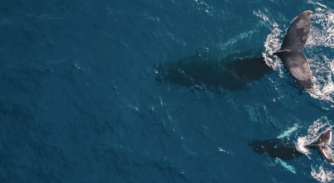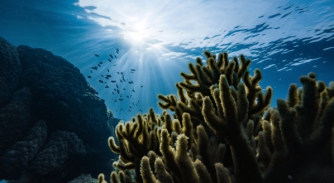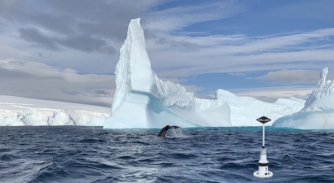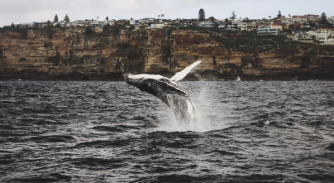Landmark high seas treaty reached
The United Nations treaty framework for the protection of the ocean will require significant research and resources moving forward…
The cumulation of over a decade of talks, the treaty, signed by 193 nations, lays out an overdue legal framework for the protection of the 'high seas'. These areas sit outside the territorial waters of any one nation and host a wide array of ecosystems and resources, and at present only 1.2 per cent are protected.
The cliché, that we know more about the surface of Mars than the deep sea, remains frustratingly true, and this lack of data is one of the major hurdles that has inhibited the implementation of effective international regulations. There is a fantastic opportunity here for the superyacht fleet, and its nascent but growing relationship with the scientific community, to take a more active role in research and monitoring.
The ‘tragedy of the commons’ is an economic theory that was first coined in 1833 by British writer William Forster Lloyd. As a term it is used to describe a situation in which individuals, acting in their own self-interest, use a shared resource in a way that ultimately depletes or destroys the resource, causing harm to all users in the long run. Nowhere has this prescient theory played out more vividly than the exploitation of the high seas.
The importance of these regions is hard to overstate. Home to vast natural recourses and interconnected ecosystems, they support life now in ways we are only beginning to truly grasp. They also host precious and fragile resources that will also play a crucial role in the survival of life in the future.
Taking one example, the ocean produces roughly 50 per of the world's oxygen, with oceanic phytoplankton responsible for about 70 per cent of the oxygen produced. One study published in Nature estimated that the world's oceans produce approximately 24.6 billion metric tons each year. This is roughly equivalent to the amount of oxygen produced by 300 Amazon rainforests.
“We only really have two major global commons — the atmosphere and the oceans,” says Georgetown marine biologist Rebecca Helm. "While the oceans may draw less attention, protecting this half of earth’s surface is absolutely critical to the health of our planet.”
Ocean ecosystems exist irrespective of arbitrary country borders. These ecosystems are highly susceptible to anthropogenic influences such as ocean acidification. Having an overarching legal framework is imperative to the protection of the ecosystem as a whole, by allowing for the establishment of universally agreed marine protected areas (MPAs) and other conservation measures.
This treaty also aims to put limits on commercial fishing, shipping lanes and exploration activities like deep-sea mining. The latter in particular has been hugely controversial in its underregulated and destructive expansion into the deep sea.
The High Ambition Coalition – which includes the EU, US, UK and China – were key signatories to the deal, which includes 193 nations in total. The European commissioner for the environment, ocean, and fisheries, Virginijus Sinkevičius, described the agreement as a “historic moment for the ocean” and the culmination of more than a decade of work and international negotiations.
The treaty is also vital to the enforcement of the 30x30 pledge, made by countries at the UN biodiversity conference to protect a third of the ocean by 2030. While, as the name of the coalition suggests, this agreement is ambitious, significant work remains to enforce this framework. With the continued work of ground-breaking scientific private expeditions and vessels, the industry is perfectly poised to support this treaty in the vital decades to follow.
Closer collaborations between organisations such as Yachts for Science and the expanding global fleet of highly capable vessels will play a fundamental role. There has been a marked momentum within an expanding section of the superyacht industry towards using these platforms for scientific research. Alongside the specialist vessels, the wider fleet, with the right support, is poised to take up the challenge of supporting the research that will underpin this landmark treaty.
NEW: Sign up for SuperyachtNewsweek!
Get the latest weekly news, in-depth reports, intelligence, and strategic insights, delivered directly from The Superyacht Group's editors and market analysts.
Stay at the forefront of the superyacht industry with SuperyachtNewsweek
Click here to become part of The Superyacht Group community, and join us in our mission to make this industry accessible to all, and prosperous for the long-term. We are offering access to the superyacht industry’s most comprehensive and longstanding archive of business-critical information, as well as a comprehensive, real-time superyacht fleet database, for just £10 per month, because we are One Industry with One Mission. Sign up here.
Related news

World Oceans Day 2022
At a key moment for ocean conservation and the superyacht industry's role within it, we look back at the stories that have challenged and inspired us
Technology

Carbon neutral yacht ownership
Dave Mallach, Founder of The Fog Warning, wants to influence the entire industry
Owner

Putting an ear to the ocean
Michel André discusses the technology available to owners wanting to better understand marine life
Owner

Why every superyacht should have a dedicated wildlife observer
How you can put those images of dolphins and whales to good use
Owner
Related news
World Oceans Day 2022
4 years ago
Carbon neutral yacht ownership
4 years ago
Putting an ear to the ocean
5 years ago
NEW: Sign up for
SuperyachtNewsweek!
Get the latest weekly news, in-depth reports, intelligence, and strategic insights, delivered directly from The Superyacht Group's editors and market analysts.
Stay at the forefront of the superyacht industry with SuperyachtNewsweek



